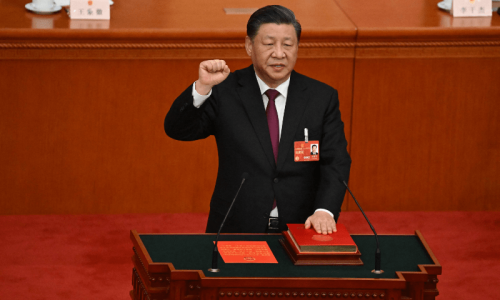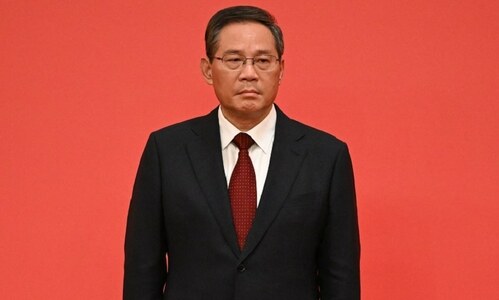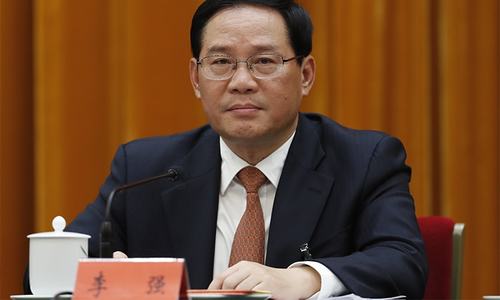Li Qiang, the former Communist Party chief of Shanghai, took office on Saturday as China’s premier, the country’s No.2 post, putting the close ally of President Xi Jinping in charge of reviving an economy battered by three years of Covid-19 curbs.
Widely perceived to be pragmatic and business-friendly, the 63-year-old Li faces the daunting task of shoring up China’s uneven recovery in the faces of global headwinds and weak confidence among consumers and the private sector.
Li takes office as tensions rise with the West over a host of issues including US moves to block China’s access to key technologies and as many global companies diversify supply chains to hedge their China exposure due to political risks and the disruptions of the Covid era.
The career bureaucrat replaces Li Keqiang, who is retiring after two five-year terms during which his role was seen to be steadily diminished as Xi tightened his grip on power and steered the world’s second-largest economy in a more statist direction.
Li Qiang is the first premier since the founding of the People’s Republic never to have served previously in the central government, meaning he may face a steep learning curve in the initial months on the job, analysts said.
Still, Li’s close ties with Xi — Li was Xi’s chief of staff between 2004 and 2007, when the latter was provincial party secretary of Zhejiang province — will empower him to get things done, leadership-watchers said.
“My reading of the situation is that Li Qiang will have a lot more leeway and authority within the system,” said Trey McArver, co-founder of consultancy Trivium China.
Slate of loyalists
Xi, 69, is installing a slate of loyalists in key posts in the biggest government reshuffle in a decade as a generation of more reform-minded officials retires and he further consolidates power after being unanimously elected president, a largely ceremonial role, for an unprecedented third term on Friday.
On Saturday, Li received 2,936 votes, with three votes against and eight abstentions, according to totals projected on a screen inside the Great Hall of the People in central Beijing.
He will make his closely watched debut on the international stage on Monday during the premier’s traditional media question-and-answer session after the parliamentary session ends.
Li was put on track to become premier in October, when he was appointed to the number-two role on the Politburo Standing Committee during the twice-a-decade Communist Party Congress.
Numerous other Xi-approved officials are due to be confirmed on Sunday including vice premiers, a central bank governor and other ministers and department heads.
Uneven recovery
China’s economy grew just 3pc last year, and on the opening day of parliament Beijing set a modest 2023 growth target of around 5pc, its lowest goal in nearly three decades.
Li’s top task this year will be beating that target without triggering serious inflation or piling on debt, said Christopher Beddor, deputy China research director at Gavekal Dragonomics.
While China has not signalled plans to unleash stimulus to jump-start growth, potential setbacks such as a collapse in exports or persistent weakness in the property sector could force Li’s hand, Beddor said.
“The leadership has already accepted two years of exceptionally weak economic growth in the name of Covid containment. Now that containment is gone, they won’t accept another,” he said.
China’s post-pandemic recovery has been uneven, with February inflation unexpectedly soft, while Chinese e-commerce giant JD.com Inc warned on Thursday that rebuilding consumer confidence would take time.
Some of Beijing’s most successful private firms such as Alibaba have been battered by abrupt crackdowns and regulatory hurdles in recent years, and Li will have to work hard to restore confidence in the private sector.
Global business is also wary. For the first time in 25 years of its survey, the American Chamber of Commerce in China said early this month that a majority of responding companies said China is no longer seen as a “top three investment priority”.
China is trying to present a business-friendly face.
On Friday, the Xinhua news agency reported that an official with China’s state planning agency had met with a vice president from US chip giant Qualcomm Inc and conveyed that it will provide a good business environment for multinationals.















































Dear visitor, the comments section is undergoing an overhaul and will return soon.